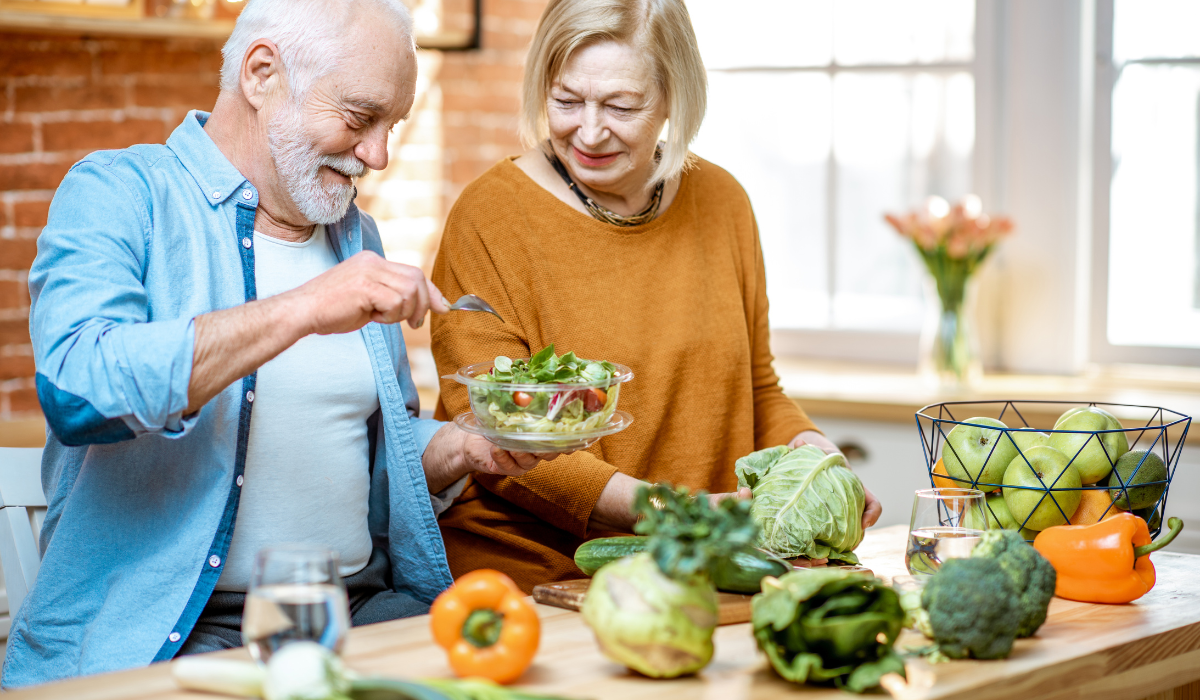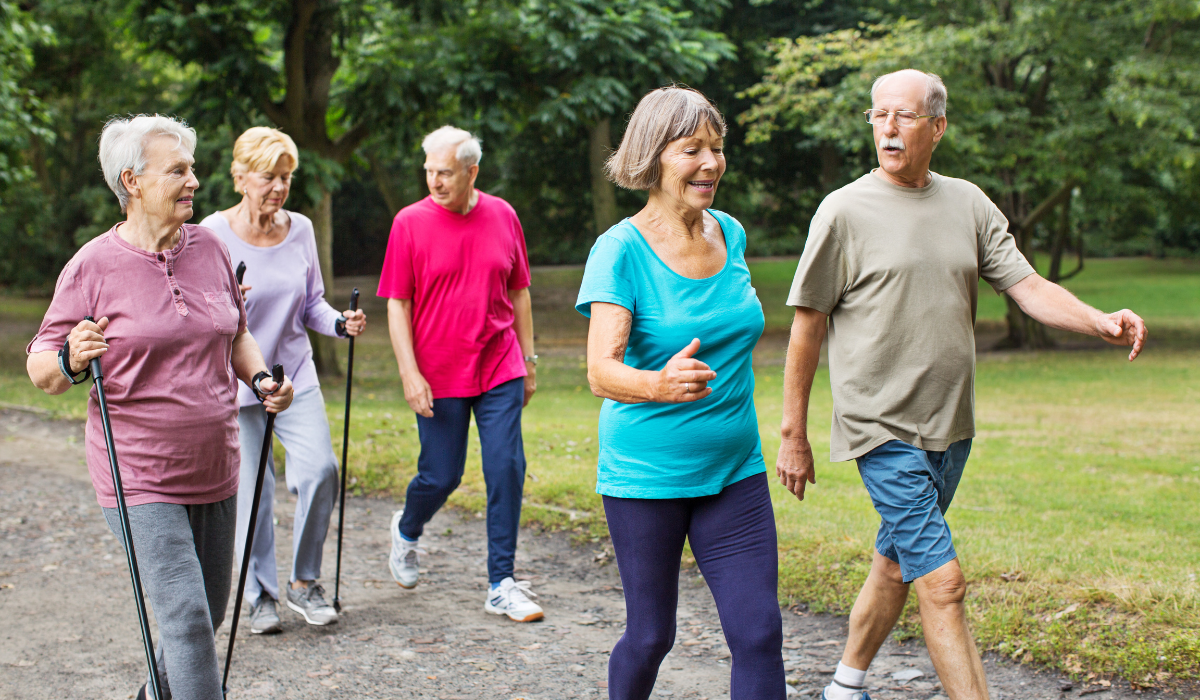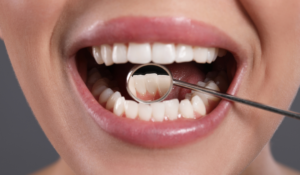Health becomes more important with age. Right healthy living routines help people stay active, mentally sharp, and emotionally fulfilled. Let’s look at some of the practical routines that can make aging a vibrant and healthy journey.
Why Health Living Routines Are Necessary for Aging Adults
While aging will herald many changes in your body, this is no excuse for your quality of life to decrease. Adults’ physical and emotional well-being depends on their adoption of healthy lifestyle practices. The routines help one by reducing one’s chances of chronic illnesses like diabetes and heart disease, enhancing mobility, better brain functioning, and emotional well-being.
A goal should be graceful aging, complete independence, and enjoyment of life. Without such routines, one might experience low levels of energy, the probability of an increased injury, and a lesser quality of life.
The intense healthcare pathways include exercise, a balanced diet, social activities, and mentally challenging engagement in pursuit of remaining active, sharp, and connected. Older adults’ healthy living routines, as such, do not only prolong life but also improve the joy and richness of each day.
When to Start Your Routines
The best time to begin is now. A person is never too old to adopt a healthy lifestyle. It does not matter if you are 60, 70, or any years older. You will be amazed by the difference it makes in health and happiness. Over time, small changes add up to big improvements. Now let us consider some of the effective healthy living routines you can adopt today.
Start Your Day with Gentle Movement
Light exercise in the morning helps to increase flexibility and blood circulation. It loosens stiff joints and keeps stiffs away. Keeping people active can prevent chronic diseases with 30% of adults over 65 years old.
Tips to get started:
Try to get gentle stretches or yoga.
Go for a quick, brisk walk in the open air.
For action, try some easy chair poses or tai chi.
Eat for Energy and Health

A healthy diet, rich in nutrient-dense foods, should be of great importance for maintaining energy and preventing problems. A diet providing a lot of fruits, vegetables, whole grains, and lean proteins will support you at every step of life.
Key nutrients for aging adults:
Calcium and Vitamin D in the Strength of Bones.
The heart and brain benefit from omega-3 fatty acids.
It contains fiber to promote a healthy digestive system and ward off constipation.
Quick meal ideas:
Start by having a high-fiber breakfast meal, like oatmeal with fruits.
Then grill chicken salad for lunch.
Dinner is a light meal of steamed vegetables accompanied by baked fish.
Stay Mentally Engaged
Mental stimulation is significant in keeping the mind active and cognitively sound. Surveys have revealed that elderly individuals who challenge themselves mentally are 2.6 times less likely to develop Alzheimer’s.
Ways to keep your mind sharp:
Do puzzles or board games that involve your thought process.
For instance, reading books or learning something new; can stimulate the brain.
Engage in debates or discussions so that your mind stays sharpened.
Make Social Connections a Priority
It is the foundation of psychological and emotional well-being. Seniors who stay engaged through social contact have fewer episodes of depression higher happiness levels, and even longer life spans.
How to stay connected:
Meet with friends and relatives regularly.
Join some local groups or other community activities that may interest you.
Volunteer in your community and make friends with new people.
Prioritize Sleep for Recovery
This is the quality of rest you need so that as you grow older, your body can repair and recover itself. Lack of sleep results in memory problems, irritability, and weakened immunity.
How to improve your sleep:
Maintain a regular sleep schedule.
In the evenings and at night, stay away from caffeine and large meals.
This helps to create a resting environment by simply reducing the light and noise.
Hydration: A Simple Yet Overlooked Routine
Although many older adults forget to drink during the day, dehydration can lead to such symptoms as confusion and dizziness as well as other medical issues. Interestingly, hydration contributes to the maintenance of your energy, aids digestion, and helps combat several common infections.
Tips for better hydration:
8 glasses or more of water should be consumed daily.
Hydrate with hydrating foods such as cucumbers or watermelon at meals.
Pack a bottle of water too, and during the day remind yourself to drink by sipping from the bottle.
Stay on Top of Medical Check-ups
Regular health checkups are also essential in determining problems at an earlier stage and the control of long-term health issues. Preventive care can also help avoid complications from chronic diseases, which more often cause ill-health conditions among elderly persons.
Common medical screenings for seniors:
Records indicate that blood pressure and cholesterol checks are measures used in the control of heart health.
Osteoporosis can therefore be prevented or treated using bone density tests.
Regular check-ups of the vision and hearing so that these senses would be healthy.
Keep Your Home Safe and Accessible
Since falls are the most common cause of injuries among older individuals, home safety is crucial. At times, you just have to take a few minor steps to turn your home into a safer and more comfortable dwelling.
Home safety tips:
Have installed grab bars, especially in bathrooms.
Ensure that walkways are clear and well-lit.
Non-slip rugs and mats will enormously contribute to the prevention of falls.
Focus on Emotional Well-being
Change in life could be retirement or just the loss of loved ones. Such events affect emotional health, but there must be a way to handle these feelings and maintain a positive attitude toward life.
Ways to boost emotional well-being:
Practice mindfulness or meditation to reduce stress.
Seek emotional support through friends, family, or counselors.
Keep a gratitude journal and just remind yourself of the good times.
Conclusion
With these Health Living Routines for Aging Adults, embrace these to become healthier both physically, mentally, and emotionally. Gentle exercise, proper nutrition, social engagement, mental stimulation, and sleep allow you to age with vitality and purpose. There’s no better time to begin changing positively towards a healthier and more fulfilling life.
FAQ’s
Why are healthy living routines important for aging adults?
They reduce the manifestation of aging alterations, lower the possibility of developing chronic diseases, and most importantly, the general well-being.
What exercises are best for seniors?
Low-impact exercises such as walking, yoga, swimming, or tai chi are outstanding in keeping mobility and strength intact.
How can aging adults stay mentally sharp?
Other brain-building activities include puzzles, reading, and learning new skills.
How much water should older adults drink daily?
Elderly adults should hydrate themselves with at least 8 cups of water a day to keep hydrated while catering to optimal health.






